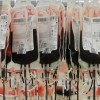UK lockdown: are Brits staying at home?
Interview with
People in more than forty countries around the world are adapting their lives to a locked-down society. Here in the UK, researchers at Oxford have been using data from mobile phones to understand and predict the impact of the government’s social distancing measures on population movement. So are Brits truly staying at home? Phil Sansom heard from Naked Scientists tech correspondent Peter Cowley...
Peter - Well we'll explain in a minute how the technology works, but basically they've come up with some headline figures, some of which are quite astonishing. Apparently since the beginning of March, the population movement’s dropped by 98%. Now this 98% is based on a hundred metres from one's normal place of residence, which of course, for almost all of us, it's the home. That seems a large number. 55% of Britain stayed at home on Easter Monday. I'm surprised that it's as low as that actually, I would have thought it to be more.
Phil - That's only half. Yeah.
Peter - Exactly. I mean, I went for a run or a cycle or something that day, but not everybody did. As we've heard on the news, overall hospital footfall has fallen dramatically and as you've seen, the A&E departments are trying to attract us back in again, so we don't have a stroke or a heart attack and don't go into hospital. There was a load of data collected and analysed. There's a lot they can do with this, but this was the initial response.
Phil - 98%! That does seem... I know we're locked down, but that still seems high. How have they figured this out?
Peter - They figured this out using data from three sources. One of them is so-called Facebook Data for Good. I'm not quite sure what that is. But the other two I'm more clear on. There's a company called Cubiq, with a Q at the end, that collects data from apps. These are apps that one loads onto one's phone and agrees for the GPS location to be reported back. There's about 500,000 of those. And then something called C.K Fata, which is slightly more interesting cause it's collecting data from mobile phone masts. Not as accurate as the GPS, but it tells you which cell you're in.
Phil - So a lot of it is apps that you'll have clicked “yes, location services, that's fine,” not realising that in the terms and conditions that says can go to, you know, Oxford researchers.
Peter - You said that Phil, not me, but that's probably correct. Exactly.
Phil - When it comes to that third part, the phone mast data, how does that work?
Peter - As you move between areas, so in a car, on a train or whatever, you move between mobile phone masts. Each mobile phone mast knows location, so it can pass it on to the next one. It's within... obviously in some places like say the Lake District, it might be covering several kilometres. In the center of London, it might be covering just several tens of metres. But it gives you a reasonably accurate position, certainly in a built up area, of where the mobile phone is.
Phil - So how many people are they covering?
Peter - They don't... they're not willing to say. They say about 500,000 come from the apps. If you look at the ownership of the company, C.K Data, it's partially owned by one of the big mobile phone networks in the UK. So I suspect it's many millions of users they have data on.
Phil - So overall, this seems to be a lot of people. Have they figured out, say that the 55% of people who stayed at home on Easter Monday, how many of those who didn't went further afield than their government mandated run or exercise?
Peter - A very good question and I can't tell you the answer, I think you'd have to interview the people, the academics there. I suspect that data will be there, and I suspect that data would be something that if we were to have the sort of, I won't say police state, but I happen to know somebody in Italy and they're fining tens of thousands of citizens a day for nonessential travel. Whereas we're just fining hundreds of people a day, so that data could definitely be used in a state that was becoming stronger on enforcing nonessential travel.










Comments
Add a comment